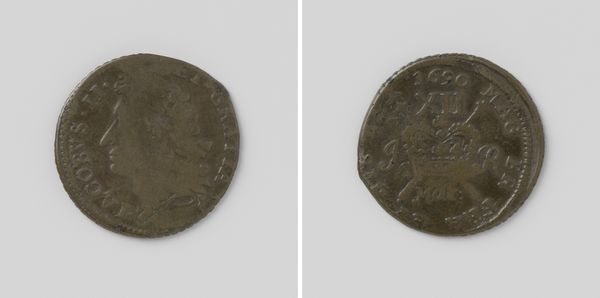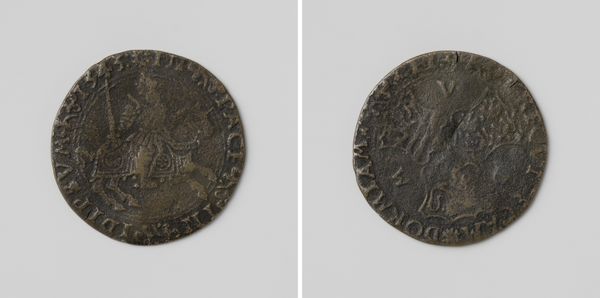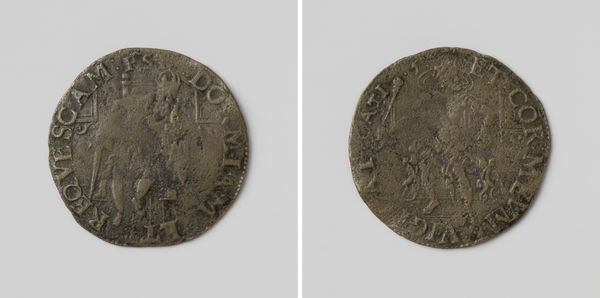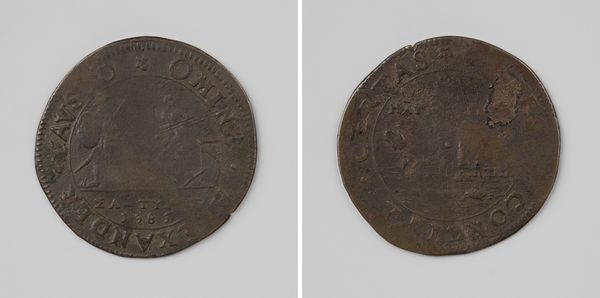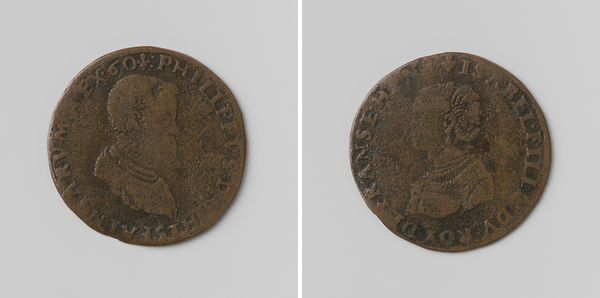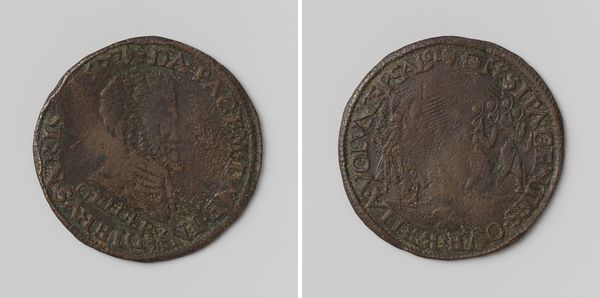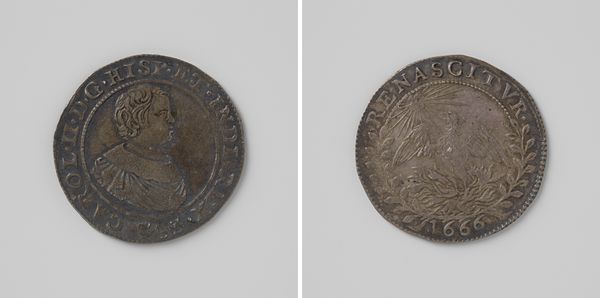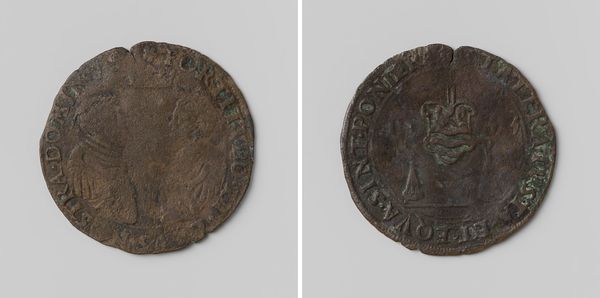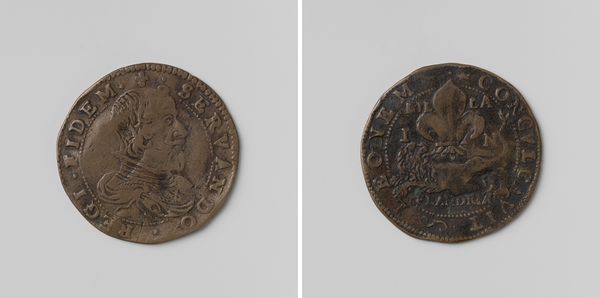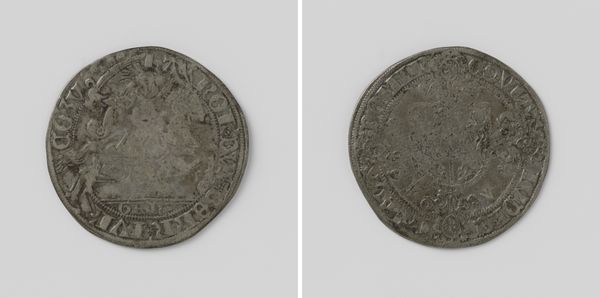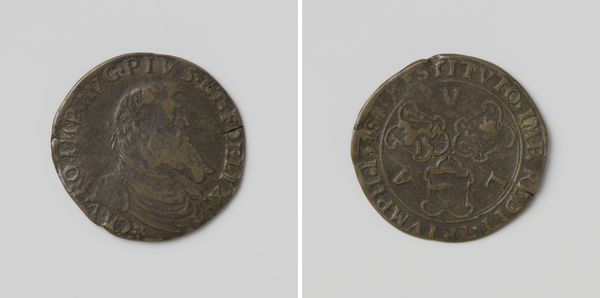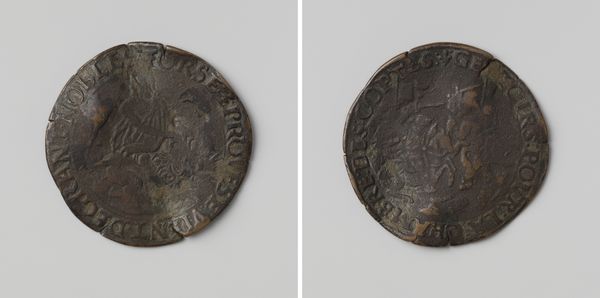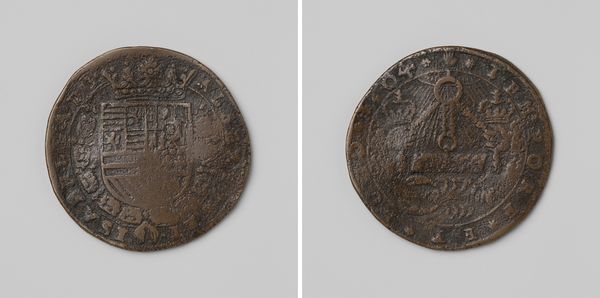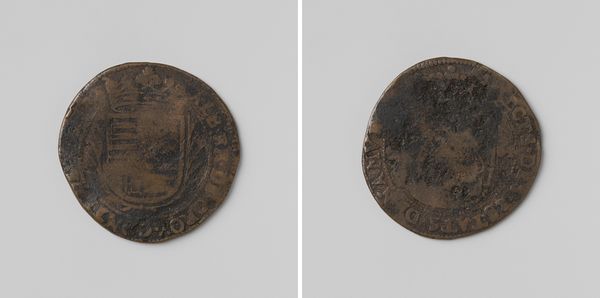
Verbreiding van het geloof, rekenpenning van de hofmeester van de keizer 1527 - 1540
0:00
0:00
anonymous
Rijksmuseum
carving, print, metal, relief, sculpture
#
portrait
#
medieval
#
carving
# print
#
metal
#
sculpture
#
relief
#
figuration
#
11_renaissance
#
sculpture
#
carved
#
history-painting
Dimensions: diameter 2.8 cm, weight 3.50 gr
Copyright: Rijks Museum: Open Domain
This bronze coin was made anonymously, and likely used as a counting token by the emperor's steward. As a medium, bronze is incredibly durable, chosen here to withstand constant handling. Though small, this coin's form bears the weight of a significant moment in history. The coin was likely created through a process of casting, where molten bronze was poured into a mold. The details were probably refined by hand using chasing tools to achieve the crisp imagery and lettering. The imagery is not accidental: the eagle, a symbol of imperial power, looms over a scene of offering. This wasn't just a tool for accounting. It’s a statement about the economic systems and the ways labor and resources were managed within the imperial household. It reflects the power dynamics inherent in the structures of patronage and religious authority of the time. Thinking about this coin, it's crucial to recognize that even the most functional objects can be deeply embedded with symbolic meaning.
Comments
No comments
Be the first to comment and join the conversation on the ultimate creative platform.
